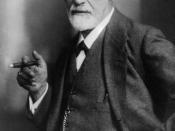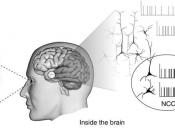Consciousness is the awareness of environmental and internal cognitive events. Two lines of scientific research established consciousness as legitimate cognitive topics: research on implicit memory and physiological studies of the hippocampus and amnesic patients. Consciousness involves monitoring our environment and ourselves so that precepts, memories, and thoughts are represented in awareness so that we are able to initiate and terminate behavioural and cognitive activities (Kihlstrom, 1984). Processing information from the environment is the main purpose of the body's sensory systems. It leads to awareness of what is happening in our environment as well as within our own bodies. However, it is not possibly for humans to attend to all of the stimuli that impose on our senses, therefore, our consciousness concentrates on some stimuli and ignores others. Our attention is selective. Humans can execute mental functions, even intricate ones, without being conscious that they do so. Humans can perceive, retain information, and reason with no conscious administration of these complicated activities.
A huge amount of human behaviour also takes place subconsciously.
Subconscious processes are mental or behavioural activities that take place outside of conscious awareness (Crider, Goethals, Kavanaugh & Solomon, 1989). Many psychologists break subconscious mental activity down into two groups; preconscious processes and unconscious processes. The term preconscious memories are used to relate to memories that are available to consciousness. They comprise of particular memories of personal events as well as information Preconscious processes are those subconscious activities that can be brought into awareness by paying attention to them. One of the earliest theories of conscious is the psychoanalytic theory of Sigmund Freud. Freud and his colleagues believed that there is a section of the mind, the unconscious that contains memories, impulses, and desires that are not accessible to conscious. Unconscious processes are subconscious mental activities that are...


